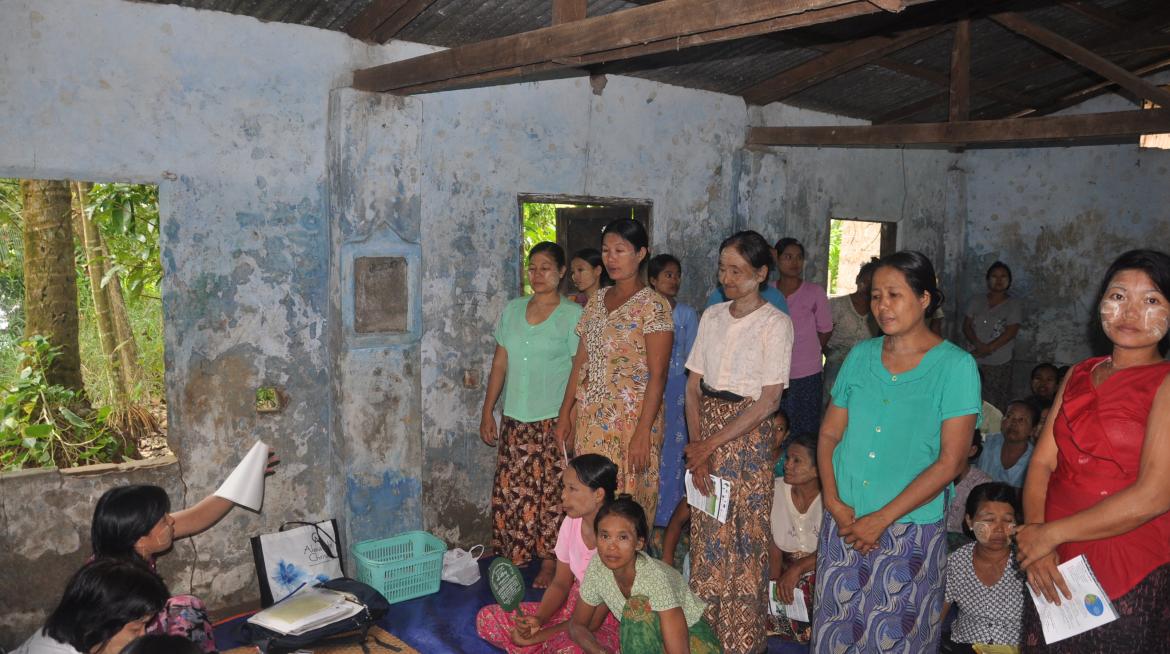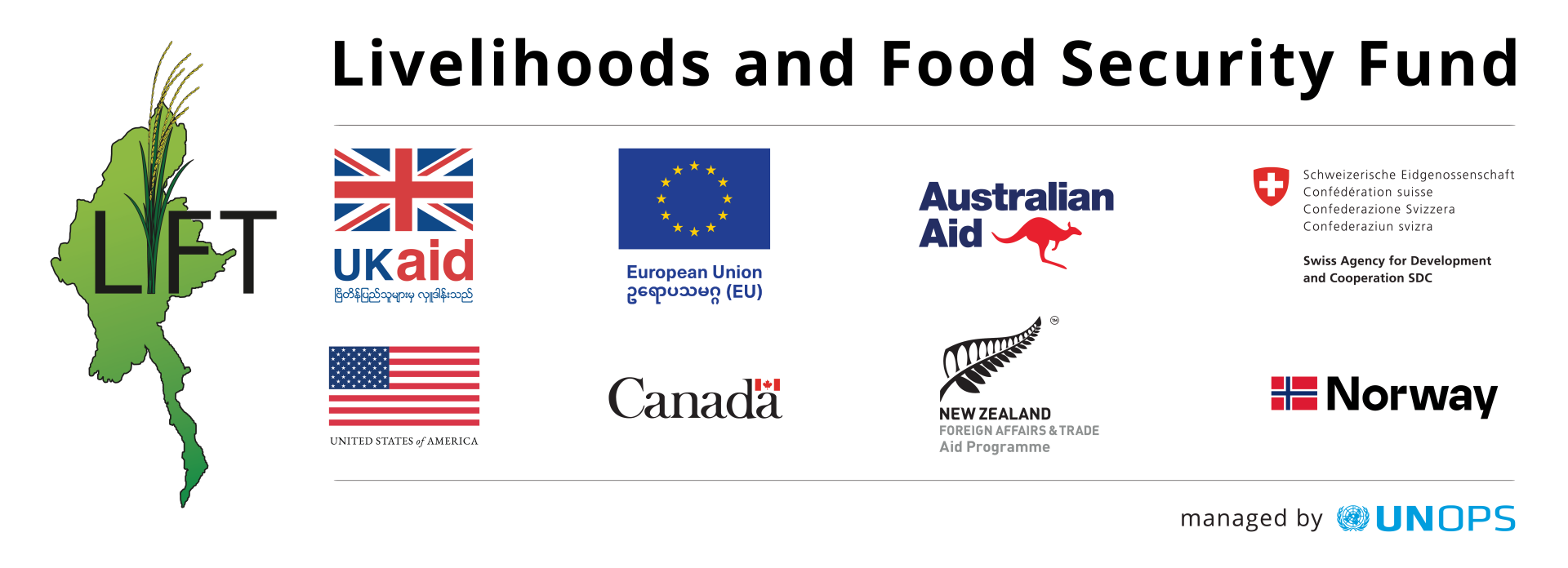
With microcredit loans from LIFT partner Pact, villagers in the Delta are rebuilding their lives after Cyclone Nargis and have the option to grow their own small businesses, writes Aung Kyi Kee from UNOPS Communications.
Daw Ni Ni Win waits inside Kyee Chaung’s sun streaked community hall, ready to receive a small loan that will allow her to start raising ducks and pigs.
“I am borrowing K500,000 (about $500) to keep ducks and pigs to gain extra income for my family, in addition to the money we get from agriculture," she says.
Beside her, Daw Thin Thin Kyu will also be borrowing K500,000. “I plan to open a small grocery shop at home, selling eggs, rice, betel nuts and leaves,” she says.
Both women are taking loans from Pact Microfinance, an organisation which is supported by the Livelihoods and Food Security Trust Fund. By using the loans to diversify sources of family income, the women not only make money, but balance the risks involved in relying solely on rice cultivation.
Loans are provided to groups of five women – known as Self Help Groups - who support one another to make the repayments and cover those who can’t pay.
Of the 124 households in the Delta region village of Kyee Chaung, women from 48 households received microfinance services for farming and non-farming activities including growing vegetables and betel plants, as well as breeding ducks and pigs.
Pact's financial services complement the livelihood development activities of other LIFT partners in the Delta region, allowing people access to credit - for example, to purchase locally adapted, quality paddy seeds. Pact also stimulates small business ventures through a range of basic small business development support services.
Another village, Daw Ohn Myint Kyi, also a member of a Self Help Group, says that microfinance services have helped her family recover from the impact of Cyclone Nargis in 2008 that had left her home and farm in ruins and killed the family’s livestock.
"We even had to pawn our land to get loans from a money lender before Pact came here to provide financing services," she says.
With her loans, Daw Ohn Myint developed a varied business breeding pigs and trading groceries, betel nuts and leaves. Eventually she was able to regain her farmland from the money lenders.
Pact loans are often used to supplement government loans to farmers. Although the interest rates are higher than government loans, they are seen as more convenient as service is provided in the villages. The interest rates are also far below those of local money lenders.
The Pact microfinance programme also offers training on saving habits, to build ability to cope if faced with shocks and setbacks, and to help people plan for the future. Pact also has established a beneficiary welfare programme that provides extra security to cover unexpected costs, with both cash assistance and loan write offs.


